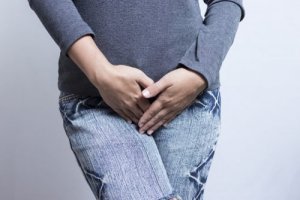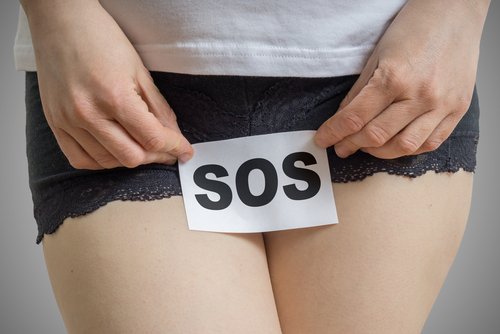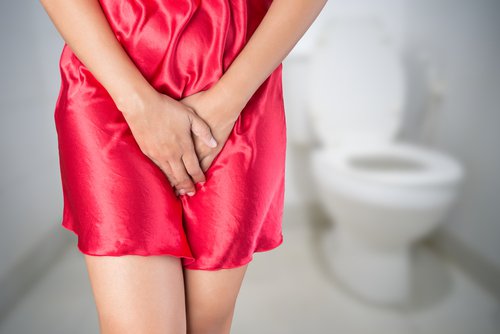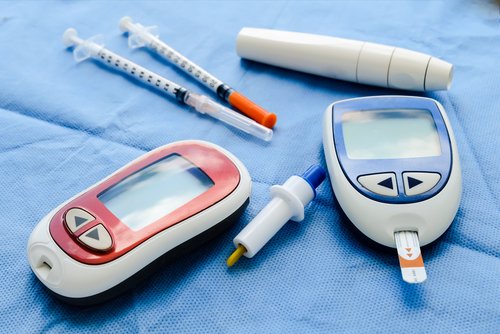Common Causes of Vaginal Dryness

The majority of women have experienced discomfort in their vagina and labia at some time in their life. However, many of them don’t know the causes of vaginal dryness.
When there’s a decrease in estrogen, the symptoms worsen due to the dryness in this intimate area. In medical terms, this is known as vaginal atrophy and it causes inflammation in this area.
Although it may not seem like that big of a deal, this discomfort can change your daily activities, your sex life and, as a result, your relationship with your partner.
But, why does it happen?
It occurs when their is a decrease in fluids in the vaginal area. The female body part is not lubricated enough and this causes pain and burning.
It is very common that during sex you may feel sensations of itching, sensibility, irritation and inflammation in the vagina.
The causes of it can be natural, physical or psychological.
Natural causes

In general, natural causes are responsible for vaginal dryness.
Low estrogen levels
Vaginal flow changes when are menstruating, both in amount and consistency.
Estrogen is produced when the egg passes its maturation stage. Even when it is not released, the vagina is lubricated, but it decreases in amount during menstruation.
Pregnancy and lactation
When a women is pregnant or lactating there is a hormonal imbalance that alters the amount of estrogen that is produced.
Particularly in the case of lactation when women secrete prolactin. This hormone helps with the production of milk, but it decreases estrogen levels.
When you start to menstruate again, your levels become balanced and the vagina becomes naturally lubricated.
Menopause
With age, the amount of eggs in the vagina is reduced. This also causes a decrease in estrogen levels.
The walls shrink and lose their elasticity, and this causes a change in pH levels. The glands frequently contract and this causes a decrease in lubrication.
It is very probable that the woman will feel a heavy sensation, pressure in the vagina, itching or burning in this area.
Physical causes
Inflamed vaginal tissues

In many cases, vaginal dryness is a symptom provoked by an infection.
There are certain products, medications, illnesses and hygienic habits that can increase your risk:
- Intrauterine device (IUD) can cause inflammation in the walls of the vagina.
- The diaphragm is often too big and can cause vaginitis.
- Spermicides or latex causes irritation in this area.
- Vaginal infections like Candida or vaginitis cause irritation and vaginal dryness.
Medications
Among the medications that can cause dryness you can find:
- Contraceptive pills or ovarium medications
- Gastrointestinal treatments
- Antidepressants
- Antihistamines for allergies and colds
Diabetes

People with diabetes generally experience dry skin since they have a blood glucose deficiency.
There is normally no response to a sexual stimulus, but the blood vessels break and prevent the vagina from secreting the proper amount of fluid.
Poor hygiene
Carrying out an adequate hygiene routine does not mean that you need to abuse the cleansing products.
In some cases, vaginal dryness is caused by the excessive use of soaps, lotions, gels and vaginal deodorants.
Psychological causes
Stress

When the body is faced with stressful situations, there is an increase of cortisol in the blood. This causes irregularities in the secretion of sexual hormones.
So, it interferes with vaginal hydration.
Fear
There are women who have emotional problems when it comes to sexual relations.
They are afraid of or disinterested by the act and a signal is sent by the nervous system which makes it so they are not stimulated, meaning there is no vaginal lubrication.
Recommendations
- Neutral soap and water is enough to clean the vaginal area.
- There are external and internal lubricants that are sold over the counter that can help with this problem.
- Control your consumption of alcohol and your tobacco use.
- Drink at least 2 liters of water a day.
- Exercise.
- Foods that are rich in soy contain isoflavones that have similar effects to estrogen.
Despite all of the options that exist to counter the effects of the lack of lubrication in the vagina, it is very important to go to your gynecologist so that they can recommend the best treatment for your individual case.
All cited sources were thoroughly reviewed by our team to ensure their quality, reliability, currency, and validity. The bibliography of this article was considered reliable and of academic or scientific accuracy.
- Stika, C. S. (2010). Atrophic vaginitis. Dermatologic Therapy. https://doi.org/10.1111/j.1529-8019.2010.01354.x
- Hainer, B. L., & Gibson, M. V. (2011). Vaginitis: Diagnosis and treatment. American Family Physician. https://doi.org/10.2165/00003495-197204050-00004
- Bachmann, G. A., & Nevadunsky, N. S. (2000). Diagnosis and treatment of atrophic vaginitis. American Family Physician. https://doi.org/10839558
- Wilhite, M. (2017). Vaginal Dryness. In Integrative Medicine: Fourth Edition. https://doi.org/10.1016/B978-0-323-35868-2.00059-1
This text is provided for informational purposes only and does not replace consultation with a professional. If in doubt, consult your specialist.








